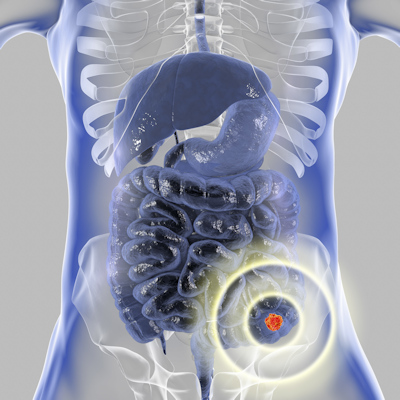October 17, 2022 -- Researchers at Mount Sinai's Tisch Cancer Institute have identified a new gene that is essential to colon cancer growth and found that inflammation in the external environment around the tumor can contribute to the growth of tumor cells.
In their study, published October 17 in the journal Nature Communications, the scientists discovered that the environment around a colon cancer tumor can program what is known as a "super enhancer" -- a complex area of DNA with a high concentration of transcriptional machinery that controls whether a cell is malignant.
This super enhancer -- the largest 1% to 2% of all enhancers in the cell -- regulates the gene PDZK1IP1, which was previously not identified as a cancer gene. Once researchers deleted PDZK1IP1, colon cancer growth slowed down, suggesting that PDZK1IP1 and its super enhancer could be targets for anticancer therapies.
The researchers found that the super enhancer is activated by surrounding inflammation in the tumor microenvironment. The inflammation allows the cancer cells to survive in an environment they otherwise could not. For most patients with colon cancer, the inflammation that's occurring in the tumor is contributing to the tumor's growth, according to the study's authors.
As inflammatory bowel disease is a known risk for colon cancer, this finding could potentially lead toward more targeted therapy that reduces inflammation to lower the level of expression of PDZK1IP1, which could benefit patients with colorectal cancer.
This discovery was made possible by studying live tumor tissue and surrounding healthy tissue immediately after the surgeries of 15 colon cancer patients. Being able to prepare and analyze live cells allowed researchers to see the tumor microenvironment and the genetic and biologic drivers of colon cancer, said the study's first author Royce Zhou, an MD/PhD student at the Icahn School of Medicine at Mount Sinai.
Copyright © 2022 scienceboard.net










